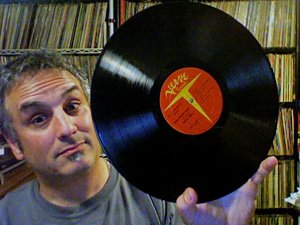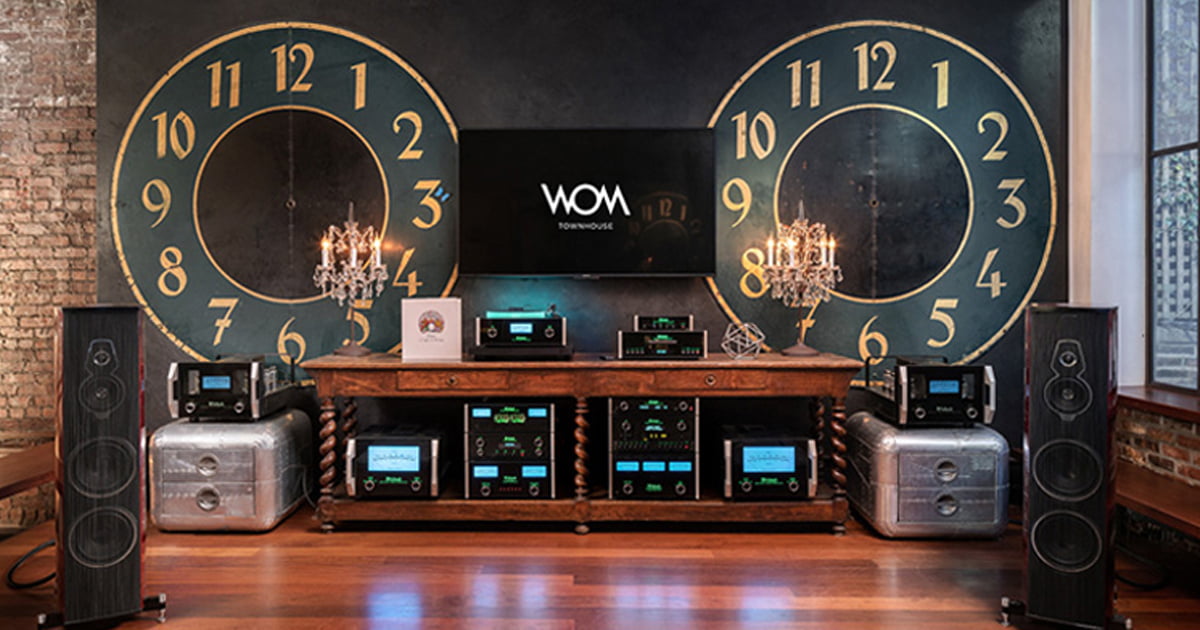It’s the time of year for saving money!
We audiophile type music collectors are a funny bunch. We often go to extremes to find best possible versions of our favorite recordings, be it on SACD, Blu-ray Disc, high resolution downloads or fancy heavyweight vinyl records pressed in exotic locales (Germany! Czech Republic! Kansas!). My latest entry into this game is a quest for a fairly definitive version of Odessey and Oracle by The Zombies. The story about the Zombies — and the creation of this legendary album — is well documented elsewhere on the Interwebs, so I’ll direct you over to the Wiki if you are not familiar with this recording and what happened in its wake.
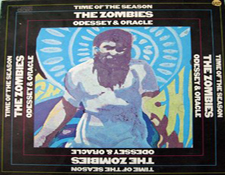 For the rest of you, I’ll get right into the crux of the biscuit (to borrow a phrase from Frank Zappa)…
For the rest of you, I’ll get right into the crux of the biscuit (to borrow a phrase from Frank Zappa)…
Now, of course the so called “holy grail” in pursuing this quest for a “best ever” copy of Odessey and Oracle will always be an original UK pressing from 1968 in either Stereo or Mono. On the short list after that comes an original US pressing with the altered cover on Date Records (a CBS subsidiary).
However, both of these items are pretty difficult to find in good shape at a reasonable price, the UK copies commanding prices in the range of many hundreds of dollars. The US pressings can approach those levels as well.
Fortunately, there have been a number of reissues in recent years which offer the budget minded audiophile many options. As I’ve become a quite passionate fan of The Zombies in the past 15 years, when reissues starting happening on vinyl I began to explore some of these options. This article will focus on a number of the most recent versions from Varese Sarabande — including one on fabulous multicolored vinyl issued exclusively via Newbury Comics — and Repertoire Records.
It is important to note that Odessey and Oracle was recorded in 1967 at EMI’s Abbey Road studios in London. The Zombies were the first band into that famed studio right after The Beatles completed Sgt. Pepper (they even used John Lennon’s Mellotron which had been left behind there!). So keep in mind there is a very specific sound of that studio and the recording gear used to make this album. This was probably recorded on a four-track recorder (as was Sgt. Pepper, albeit several machines sync’d together) and remarkably self-produced by the band (as opposed to all of the Beatles output which was guided by George Martin).
The first thing I did in prep for writing this was to listen to my original Date Records pressing. Its not a mint copy but for its age (and the price I paid for it) it plays quite well apart from some unobtrusive occasional clicks ‘n pops. The first most notable trait I noticed on Odessey and Oracle is how rich and round the bass sounds are: bass guitars are full and detailed, vocals have a lovely round flavor to complement the bright pop tones. Rod Argent’s piano cuts through the mix and Hugh Grundy’s drums punctuate when necessary with bunches of that legendary Abbey Road echo chamber. Its really a perfectly balanced mix and kudos must go out to the band for producing a classic album that has stood the test of time alongside albums made by industry heavyweights of the period. The Zombies only had an engineer at their disposal so they had to have had a very clear idea of how they wanted the album to sound right from the start. Paul Atkinson’s guitars, acoustic and electric, have distinctive tones, such as the vibrato on “Beechwood Park” — its all about the “amp tone” (as us guitar geeks call it).
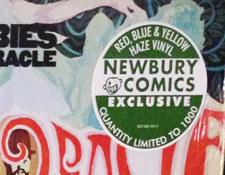 On the new Repertoire issue of Odessey and Oracle the sound is quite rich and warm, with a nice round bass and midrange flavor very much akin to the original US pressing. The thick, black 180-gram vinyl is dead quiet and perfectly centered, reputedly half-speed mastered from high definition 24-bit audio (at Abbey Road!). There is a very pleasant overall sound on this version. Colin Blunstone’s vocals sound particularly glorious. There is a really nice sense of instrument placement on this pressing. On “Brief Candles” the vocal harmonies are very clear in the left and right channels as two different distinct voices. Little details like the harmonies on the bridge shine wonderfully on this track. You can really make out the interaction between Colin and (I think) Chris White as they trade off vocal lines and even words within a sentence.
On the new Repertoire issue of Odessey and Oracle the sound is quite rich and warm, with a nice round bass and midrange flavor very much akin to the original US pressing. The thick, black 180-gram vinyl is dead quiet and perfectly centered, reputedly half-speed mastered from high definition 24-bit audio (at Abbey Road!). There is a very pleasant overall sound on this version. Colin Blunstone’s vocals sound particularly glorious. There is a really nice sense of instrument placement on this pressing. On “Brief Candles” the vocal harmonies are very clear in the left and right channels as two different distinct voices. Little details like the harmonies on the bridge shine wonderfully on this track. You can really make out the interaction between Colin and (I think) Chris White as they trade off vocal lines and even words within a sentence.
On the limited edition multi-colored vinyl version of Odessey and Oracle which I ordered from Newbury Comics — a limited edition run of 1,000 copies exclusive to that retailer — the pressing fares pretty well all things considered. First off, the vinyl itself is very quiet, thick and well centered. And while the sound is really quite nice overall, I can detect more of that digital edginess (if you will) than, say on the Repertoire version or the Date Records edition. On the choruses of “Brief Candles” Colin Blunstone’s voice takes on a slightly phase-y flavor. Most interesting is how the aforementioned distinction between Colin and Chris White’s vocals sort of blur together more on this version.
This edginess is not quite as apparent on the black vinyl Varese Sarabande version.
Got that?
Ok, so here is a cool point worth noting: I noticed this initially on the Date Records pressing of Odessey and Oracle that the whole album has a certain sound, presence and volume level from song to song, but when you get to the big smash hit at the end of Side 2, “Time of the Season,” something changes. Sonically, it felt like that particular track was different than the rest of the master used to make the LP. It almost sounds, to my ears, like they tagged on a different sounding mix for that particular song — quite possibly the hit single mix, but I’m not sure — at the end. It stands to reason they would do this, especially as a way to entice people to buy the full album knowing they would get the hit song they heard on the radio as well.
]]>Whatever the reason for this palpable sense of change between the second to last song — “Friends of Mine” — and the album’s conclusive peak on “Time of the Season,” I have noticed this only on the U.S. made editions of the album (Date Records, Varese Sarabande). On the Repertoire edition, that difference is not so obvious! To my ear, the version of “Time of the Season” there sounds much more open than other versions I’ve heard.
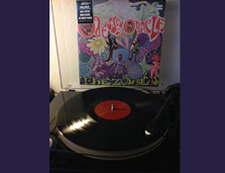 There are many possible reasons for this variation beyond my earlier guess about the producers possibly wanting to include the hit mix on the LP. There is also the possibility that the disc mastering engineers didn’t want to push the capabilities modest consumer turntables back in the day and thus pulled back the volume a bit on the final track for the US master tape. Or perhaps it was simply an oversight that has finally been corrected in this new Abbey Road-made remaster (since I’ve never had an original UK pressing I really don’t know for sure, truth be told). Nonetheless, that difference is not present on the Repertoire pressing. The Newbury Comics colored vinyl version however replicates this as does the black vinyl Varese Sarabande version and of course the original Date Records pressing. This leads me to speculate that the domestic US versions worked off a somewhat altered master for its pressings of Odessey & Oracle.
There are many possible reasons for this variation beyond my earlier guess about the producers possibly wanting to include the hit mix on the LP. There is also the possibility that the disc mastering engineers didn’t want to push the capabilities modest consumer turntables back in the day and thus pulled back the volume a bit on the final track for the US master tape. Or perhaps it was simply an oversight that has finally been corrected in this new Abbey Road-made remaster (since I’ve never had an original UK pressing I really don’t know for sure, truth be told). Nonetheless, that difference is not present on the Repertoire pressing. The Newbury Comics colored vinyl version however replicates this as does the black vinyl Varese Sarabande version and of course the original Date Records pressing. This leads me to speculate that the domestic US versions worked off a somewhat altered master for its pressings of Odessey & Oracle.
Right there, that difference makes the Repertoire version a very appealing and different thing, indeed. Highly desireable, frankly.
So what do you do with all this impassioned speculation from your humble audiophile reviewer? Ultimately, Dear Reader, the choice is up to you regarding just how obsessive you want to get about this sort of thing! My guess is that most of you more audiophile oriented fans of this album will want to seek out the Repertoire pressing. Hands down, it sounds real nice! Fans who are also collectors of original pressings will want to no doubt seek out an elusive original pressing, but that is a whole other level of obsession entirely.
I will point out that my original Date Records pressing of Odessey and Oracle was the only one of the three versions I explored which enabled me to turn up the volume on my amplifier really loudly and not have it hurt my ears. On the digitally sourced versions, I could easily feel the harsher edges, particularly on the jangling guitars and pounding keyboard parts.
Of course, not everyone sits around cranking up Odessey and Oracle to 11 most times! Played at a more reasonable average listening levels, the multi-colored Newbury Comics version does almost as well as the black vinyl Varese Sarabande pressing; however, I will give the nod to the latter for a hair more warmth.
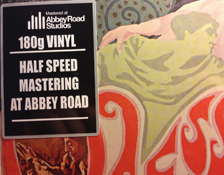 Speaking of hairs, I have to also say that there is no doubt that we’re splitting hairs of the finest level here folks, so please recognize this! Most ANY version of Odessey and Oracle that you get is going to be an enjoyable listen simply because the music is THAT great — and that is really what matters at the end of the day!
Speaking of hairs, I have to also say that there is no doubt that we’re splitting hairs of the finest level here folks, so please recognize this! Most ANY version of Odessey and Oracle that you get is going to be an enjoyable listen simply because the music is THAT great — and that is really what matters at the end of the day!
Which one will I play more often, you ask? Probably for the pure fun aspect of it, I’ll probably pull out the gorgeous Newbury Comics multi-colored version more often for gatherings with friends and such and save the Repertoire pressing for more critical listening.
Because of course I have non-stop, wild swinging ’60s parties where we sit around sipping exotic teas whilst listening to The Zombies all the time, don’t you know.
To that…. I just read online that the other “holy grail” of Zombies album collecting, a Mono edition, has been reissued by Repertoire.
I’ll add that to my wish list of albums to get. Soon I’ll have four ways to consider Odessey and Oracle on vinyl!
Woo Hoo!
